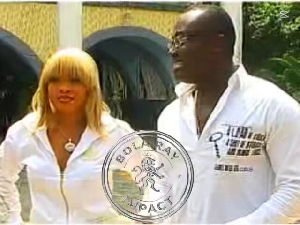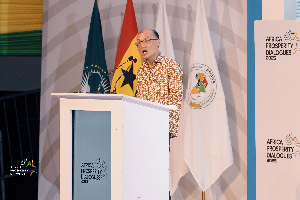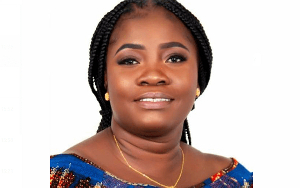Tema's first generation residents are missing the "good old days" when the euphoria of independence and prospects of nationhood captured their imagination and sense of fashion.
As the country prepares to celebrate 63 years of independence on 6 March, the residents mostly aged above 60, said they missed the old days and hoped that the courtesies, good local foods and decent fashion they know, are incorporated into modern living.
Madam Edith Hayfron, a retired educationist, told the Ghana News Agency that the iconic traditional female fashion piece ‘kaba and slit’ was in vogue in the 70s and 80s when women proudly wore it in various styles made from kente and locally manufactured cloths.
Madam Hayfron, with joy on her face, recalled how she and her contemporaries" pride themselves in smoking, house wife, three sisters, something lefer, flower pot, akukutia and abrewa mary” styles.
She noted that while nursing mothers in the past were happy to wear white attire especially kaba and slit to show their excitement and gratitude to God for seeing them through pregnancy and blessing them with a child, the current generation thought otherwise, leading to them to wear multi-coloured dresses even to occasions while nursing babies.
She added that respectable women, young ladies and men in society in those days matched their attire with footware ranging from “kayabalie, guarantee, ekumekume, afro moses, I swear god”
Mrs. Justina Brakatu Appiah, a resident, on her part, said African dressing was beautiful and elegant adding that she often put on kaba and slit to church while she preferred simple Africa print dresses for other occasions.
Mrs Appiah said the dresses made her smart and confident adding that wearing of Ghanaian made attire should not be done only on Fridays but must rather be worn for four days, preserving a day for western-styled clothing.
Mrs. Alice Awuni, a pensioner, said it was heart-warming to see people from the various cultures in Ghana now embracing the use of 'Batakari' also known as ‘Fugu' which was in the olden days purely worn by men and women who hail from the Northern part of the country.
Mrs Awuni said locally made fabrics and clothes such as the batakari, kente and others must be promoted over the imported ones on the market saying “our clothes show who we are as some have names and meanings attached to them”.
Madam Rebecca Monney, on her part, encouraged the youth to adopt some of the hairstyles that they rocked in the past such as “watchman’s wife, ntekuma, mponsa Ntiamoah, korle-bu street and tentacle” which were beautiful and graceful.
Mr Kweku Pimpim, another resident, urged Ghanaians to consume local foods as they were very nutritious and tasty.
"I will always choose Ghanaian foods such as banku with okra stew, fufu with any soup, aprapransa, beans with ripe plantain, mportormpotor and tuo zaafi with ayoyo soup among others," he said.
He urged Ghanaians to cook their food with natural spices such as locust beans (dawadawa), garlic, ginger, cloves (pepre), aniseed (nkitinkiti), and basil (akoko mesa) among others as they were medicinal.
He called for the serving of local drinks at state functions and communal events such as funerals, weddings and parties to strengthen the local economy as well as project "our culture"
General News of Thursday, 5 March 2020
Source: GNA

















